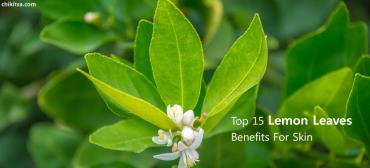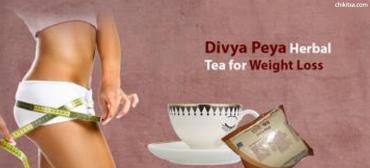Benefits Of Betel Leaf For Diabetes, Cough, Cold And More

The betel leaf is also famously known as "green gold" or "paan" in Hindi. It is not only used widely for nearly all religious customs but is also consumed in the form of a mouth freshener generally after meals by people in India. Chewing betel leaf is a common practice in South Asia and also in some parts of Africa.
The betel leaf holds immense significance in ancient medical texts by virtue of its various health benefits such as antifungal, anti-diabetic, anti-platelet, immune-modulatory, anti-oxidant, anti-inflammatory, anti-amebic, anti-filarial, anti-fertility,anti-dermatophytes, and radio-protective properties.
The betel leaf contains a considerable amount of vitamins and essential amino acids and traces of arginine, histidine, and lysine. These contents of the betel leaf make it a valuable plant since ancient times. This article will help you understand the betel leaf benefits for diabetes, betel leaf for cough and cold, and the uses of betel leaf juice for babies.
Betel Leaf Benefits For Diabetes
The tannins and alkaloid properties of red betel leaf are known to be beneficial for diabetic individuals as they help in lowering blood glucose levels.
Regular intake of betel leaves is also associated with weight loss which means that the properties present in betel leaves can influence glucose metabolism and hence regulate or lower blood sugar levels.
Diabetes is also capable of building up oxidative stress within the body by depleting antioxidants. Hence consuming Betel leaf for diabetes provides immunity by maintaining glucose metabolism.
However, very few clinical trials on humans support the theory that betel leaf for diabetes is linked to lowering blood glucose levels.
Betel Leaf For Cough
Consuming betel leaf causes an increase in levels of vitamin E, glutathione, ascorbic acid. These nutrients are potent antioxidants and are of great use to patients who suffer from bronchial asthma or chronic bronchitis.
Not only betel leaf benefit for diabetes it is very good for babies and adults as well. It can be prepared by boiling a few betel leaves along with some cardamom, cinnamon, and cloves. The concoction drained after adequate boiling provides relief from cough, lung congestion, and respiratory problems which may cause difficulty in breathing.
Ayurvedic texts also mention the use of mustard oil on the leaf and placing that leaf on the chest provides relief from breathing difficulties and coughing. The leaves can also be soaked in warm mustard oil and then applied to the chest to give relief from cough.
Chavicol is a polyphenol present in betel leaves that has anti-fungal and anti-infective properties. Therefore chewing betel leaf for cough can also work as a preventive against respiratory tract infections.
Betel Leaf For Cold
Betel leaves contain a wide variety of phytochemicals that have an anti-oxidant and also antihistamine effect. This antihistamine property of betel leaf helps in the treatment of colds, allergies, and also bronchial asthma. Crushed betel leaf can be consumed with little honey as a remedy for sore throat and cold.
Betel leaf for cold in babies can be used by inhaling the steam of water containing betel leaves. Another preparation is to roll some rock salt in the leaf and keep it in the corner of the mouth. These are some documented uses of betel leaf for colds in babies as well as adults.
Other Health Benefits For Betel Leaf And Betel Leaf Juice
- Betel leaves are rich in potassium, vitamin A and vitamin B, which means that they also hold good nutritional value.
- Eugenol is a compound derived from betel leaf which inhibits the liver from producing excess cholesterol.
- Phenolic compounds present in betel leaf are anti-carcinogenic.
- Phenolic compounds of betel leaf also have anti-bacterial, anti-inflammatory, and anti-fungal properties. Therefore they prevent oxidative stress and provide immunity against infections.
- Phyto-chemicals are found abundantly in betel leaves. These phytochemicals have antibacterial properties.
- Terpenes present in betel leaves have antimalarial properties.
- Since betel leaves have anti-inflammatory and anti-infective properties, they help in enhancing the process of wound healing.
- Betel leaf has a stimulant effect. Chewing betel leaf produces a feeling of euphorbia. Therefore it also has an antidepressant effect.
- Betel leaves have been used as a mouth freshener. The compounds present in betel leaf maintain oral health by preventing infections of the oral cavity.
- Betel leaf also has analgesic action. Betel leaf can be applied locally for relief from pain.
Side Effects Of Betel Leaf
Despite betel leaf benefits for diabetes, chewing betel leaf regularly can also produce harmful effects within the body. Excess use of betel leaf can cause the following;
Those allergic to betel leaf may have vomiting, diarrhea, shortness of breath, palpitations, and uneasiness. These must be reported to the doctor immediately and treatment should be sought for the same.
Conclusion
Although betel leaf has a wide array of documented therapeutic effects, betel leaf benefits for diabetes lack adequate research. Experiments done on rats prove the hypoglycemic effect of betel leaf, yet its actual effects upon human beings for lowering blood sugar levels are still questionable. Additionally, pregnant and lactating women must refrain from having betel leaf since the active principles present in the leaves stimulate the central nervous system. Besides, they may also have a toxic effect on both the mother and the baby.









